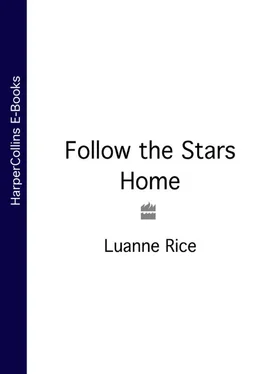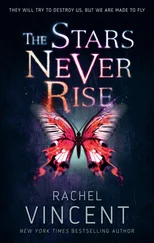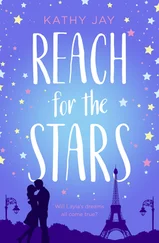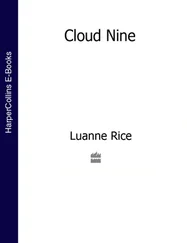1 ...7 8 9 11 12 13 ...22 “Oh, honey,” Lucinda said. “Not a party, okay? I know you want to do something for me, and I appreciate it, but I’m not the surprise-party type.”
“No party,” Dianne said.
“Besides, there’s the library dance,” Lucinda said. “I think they’re going to give me a plaque or something this year. I’ll have to pretend to be surprised. How’s this?” She made a Betty Boop face: round eyes and mouth, fingertips just brushing her jaw.
“Very convincing,” Dianne said, laughing.
“Not that I’m not appreciative,” Lucinda said. “I am – I love them all and I’ll miss them like crazy. But I’m ready, honey. My feet have been swollen for forty years, and I just want to kick these dumb oxfords right into the marsh and never see them again.”
“Julia and I will come up with something that involves bare feet,” Dianne said.
“Ahhh,” Lucinda said, closing her eyes in bliss, ticking off the time until July fifteenth.
“Gleee,” Julia said.
“Just imagine, Julia. I’ll have all this free time, I’ll be able to read all the books I’ve missed. Will you help me catch up?” Lucinda asked before opening her eyes.
Dianne exhaled slowly. Julia’s life was full of love, but it was so horribly, disgustingly unfair: to have her grandmother be the town librarian and be unable to read, to have her mother make real-life playhouses and be unable to play.
“Do you think she’s happy?” Dianne heard herself ask.
“Well, I know she is,” her mother said. “Just look at her.”
Dianne opened her eyes, and it was true. Julia was rolling her head in slow rhythms, as if she were keeping time with music in her head. She stared at Dianne. Lucinda touched Dianne’s shoulder, and Dianne leaned against her.
“My happy girl,” Dianne said, wanting to believe.
“Maaa,” Julia said. “Maaaaaa.”
Could a person die from loving too much? Could the weight of Julia crush her, squeeze the breath right out of her? Summer seemed like a sweet dream. Her mother would be retired; she, Dianne, and Julia could lie on the beach, feeling the hot sand under their backs, letting the breeze take away all their troubles.
“Go for a row, sweetheart,” her mother said. “I’ll stay with Julia.”
Dianne hesitated. She thought of that perfect white house down on the harbor: Lately all her own dreams went into the playhouses she built. Her own home was broken. Dianne felt hard and frozen inside. Her muscles ached, and she knew it would feel good to pull on the oars, slip through the marsh into open water.
“Thanks, Mom,” Dianne said.
Lucinda held her gaze. She was small and strong. Even without touching Dianne, her support and force were flowing into her. Outside, a light breeze blew through the golden-green rushes. Sea otters slid off the banks, playing in the silty brown water.
“Go,” her mother urged.
Nodding, Dianne ran down to the dock.
As kids, the McIntosh boys had lived by the sea. Neil, Alan, and Tim had grown up on Cape Cod, ten miles east of the Woods Hole Oceanographic Institution. Alan had spent several summers working in the hydrophone lab there. His mentor, Malachy Condon, told him he had the best ear for dolphin talk of any student he’d ever met. But Alan was destined to be a pediatrician.
Now, eighteen years later, on his Wednesday afternoons off Alan went to the library to read the latest issues of Delphinus Watch and Whale Quarterly –to keep up with his old interest and to see an old friend – Lucinda Robbins. The Hawthorne Public Library was two blocks from his house. But Alan went running first, so it took him forty-five minutes to get there.
“Did you do six miles?” Mrs. Robbins asked, standing behind the counter.
“Seven today,” he said.
She handed him a folded towel she had picked up from a cart of books to be reshelved.
Several months after Tim had walked out on Dianne, Alan had stopped by the library after his run. He had been missing Mrs. Robbins. She had always been good to him, accepting him into her family from the very start. He had more in common with her than Tim did – he had practically lived in libraries at Woods Hole and Cambridge, and during Tim and Dianne’s marriage, Alan and Lucinda were always talking books and ideas.
But that day, eleven years ago, he had stood there, noticing the trail of sweat dripping on the brown linoleum floor, feeling the librarian’s wrath. What had he expected? He was a McIntosh, Tim’s brother, and that fact alone was bound to set her off.
The next week he had gone home to shower first. He didn’t want to alienate Mrs. Robbins. He had realized how important she had become to him, and now she wanted nothing to do with him. Taking care of Julia, he felt the family connection more than ever, and he had come to apologize. To his surprise, Mrs. Robbins had greeted him with a striped towel.
“I’m sorry about last week,” she had said. “My evil eye is an occupational hazard.”
“You had every right,” he had said.
“No,” Mrs. Robbins had insisted, vigorously shaking her head. “You come in here sweaty anytime you want. What Tim did isn’t your fault. You do so much for Julia and Dianne.…”
Alan had started to protest, but he’d stopped himself, accepted her offer. His relationship with Dianne was tenuous, and he’d do whatever he could to guard it. He had considered the towel a one-time peace gesture, but Mrs. Robbins continued to bring it in every Wednesday afternoon.
Today he said thanks, took the towel, and found his favorite armchair. The oldest library in the state, its rooms were bright and lofty. The reading room had a stone fireplace large enough to roast an ox, and Alan settled beside it with a stack of journals to read. Clear April light flooded through the arched windows; he lost himself in the latest literature on marine mammals. And then he thought of his own family.
Their oldest brother, Neil, had loved whales. When they were only teenagers, he, Tim, and Alan had run their own whale-watching business, taking people out in their runabout to the feeding grounds off Chatham Shoals. Leaving from the steamship dock in Hyannis, they had charged ten dollars per person. It had been Neil’s idea to give full refunds, no questions asked, if they failed to spot whales or dolphins. That was Neil through and through – generous, good-hearted, and confident enough of their whale-finding abilities to know those refunds would be few and far between.
Neil died of leukemia. The summer they were sixteen and fourteen, Alan and Tim had watched their older brother slip away. Locked in the house, the curtains drawn and no one allowed to make any noise or enter Neil’s room, Neil had suffered horribly. Not just from the pain of his disease, but from isolation. He had missed the sea, the whales, the boat. He had missed his brothers. At eighteen Neil had died of leukemia, but also of a broken heart. Tim had spent the last two nights of Neil’s life sitting on the grass under his window. Alan had snuck inside to be with him.
Alan’s parents had been afraid the cancer was catching. It didn’t matter that Neil’s doctor had told them it wasn’t. They had a primal fear of the blood disease, and they had lived in terror of losing all their sons. They were simple people, a fisherman and his wife. Alan’s dad would go to sea, barely coming home at all. His mother had turned to drink.
Alan and Tim had spent the next few years caring more about fish and whales than about people. Tim had dropped out of school to lobster. Like his father, he would lose himself at sea. Alan had latched on to Malachy Condon at WHOI. The old guy was as crusty as a fisherman, but he had a Ph.D. from Columbia. Tim would steam in from a night off Nantucket, meet Alan on the docks at Woods Hole, and listen to Malachy’s colorful stories about research trips to the North Sea and the Indian Ocean. Both brothers were numb with losing Neil and the attention of their parents, and Malachy had been a steadying force.
Читать дальше












